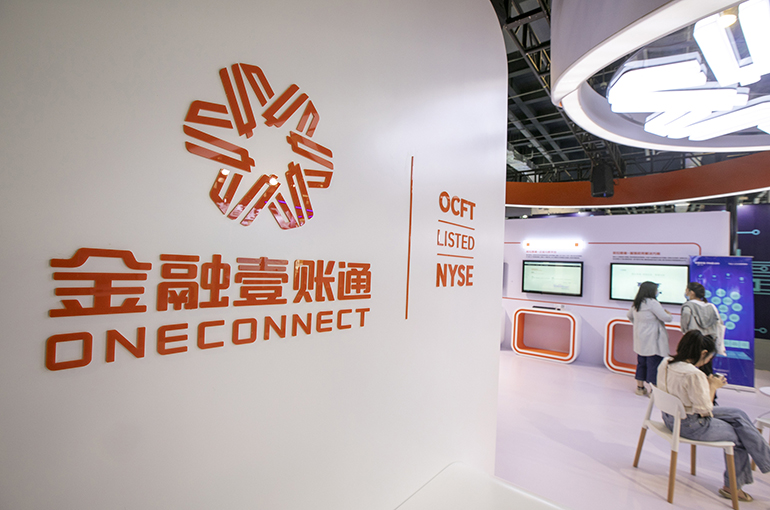 Ping An’s Loss-Making Fintech Unit OneConnect to Go Private Six Years After IPO
Ping An’s Loss-Making Fintech Unit OneConnect to Go Private Six Years After IPO(Yicai) Nov. 25 -- OneConnect has started to delist from the Hong Kong and New York stock exchanges, just six years after making its New York debut, following approval from the Grand Court of the Cayman Islands for the struggling fintech arm of Chinese insurance giant Ping An Insurance (Group) Company of China to go private.
OneConnect, which was known as the ‘first fintech stock’ when it first went public, had its Hong Kong listing withdrawn and was permanently suspended from the New York bourse on Nov. 21, according to a recent announcement. The delisting procedures will be completed on Dec. 1.
This comes just six years after OneConnect’s initial public offering on the New York stock exchange in December 2019 and a little over three years since its Hong Kong listing in July 2022. After going private, Shenzhen-based Ping An’s stake in the firm will increase to 100 percent.
OneConnect, which racked up losses both last year and in the first half of this year, told Yicai that the company will share more details about its future plans and strategy in due course.
The privatization of OneConnect, whose main products include digital banking solutions, digital insurance solutions and digital infrastructure services, was largely triggered by its poor stock performance and business fundamentals, according to media reports.
A series of expansion moves and investment decisions that failed to deliver results, combined with several Ping An subsidiaries and associates scaling back their use of OneConnect’s services last year, have weakened the company’s financial performance in recent years.
The firm’s stock price in New York has lost more than 95 percent in value since it went public. This is in part due to structurally low liquidity, waning investor interest and insufficient coverage from brokerage research reports.
Trading volumes have also been consistently low in Hong Kong, making the stock unattractive to investors and limiting shareholders’ ability to buy or sell large quantities of shares without adversely affecting the price.
Privatizations have become fairly common in the Hong Kong market this year, a brokerage analyst said. On the one hand, major shareholders may feel that the company’s stock price does not reflect its true value, and on the other hand, low liquidity can lead to distorted stock prices and make it difficult for a listed company to raise funds. In addition, going public comes with high compliance costs. By going private, a company can save these costs and redirect the resources toward business development.
A major point of criticism for OneConnect since its inception has been its heavy reliance on Ping An for revenue. Although the company has tried various ways to break this dependency and increase revenue from third-party clients, progress has been slow.
Profits at some of OneConnect’s largest clients, including third-party banks, are under pressure leading to slower credit activity and reduced IT budgets, it said. The company also continues to face fierce competition from domestic traditional IT firms and internet giants.
Editor: Kim Taylor